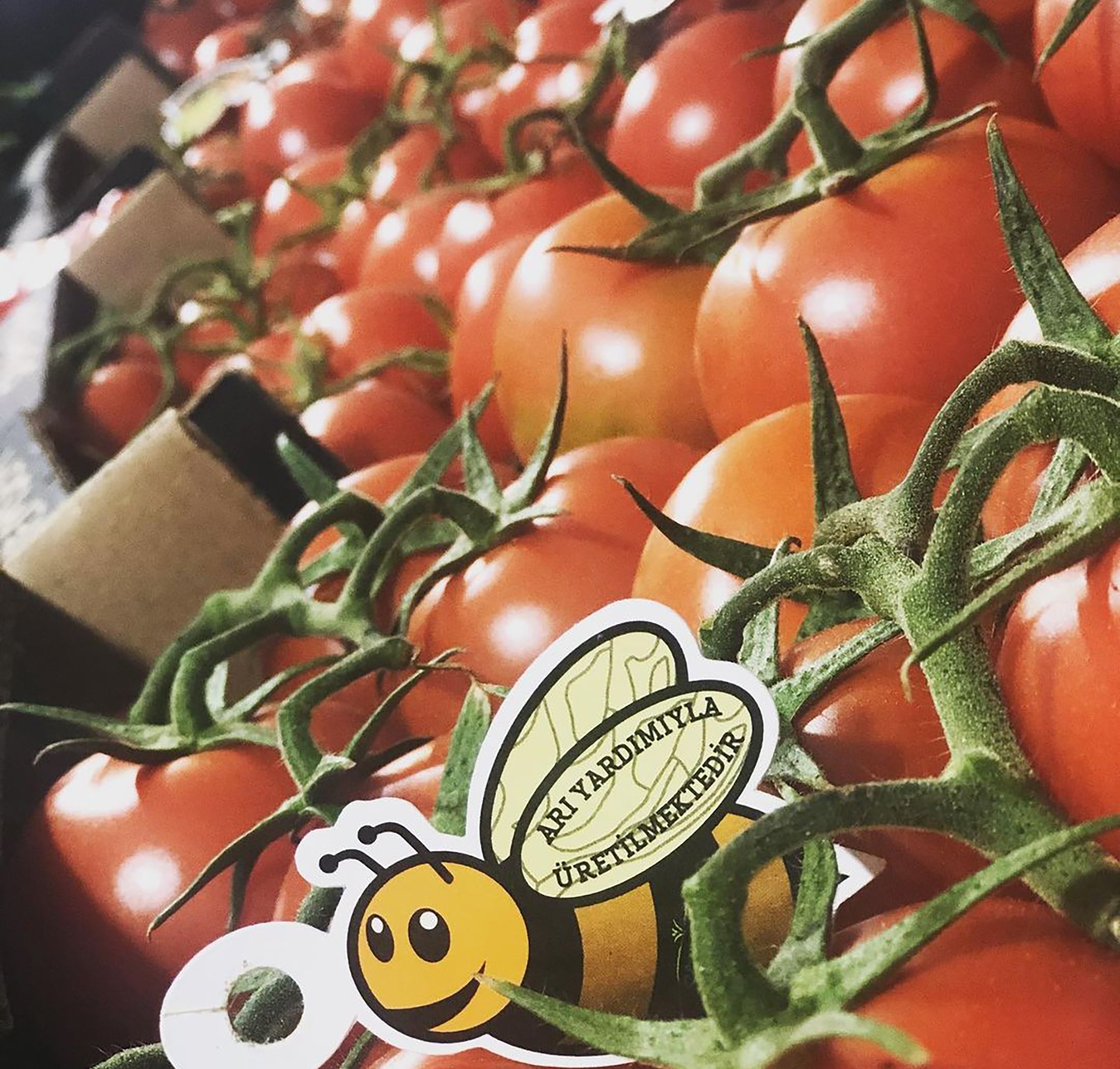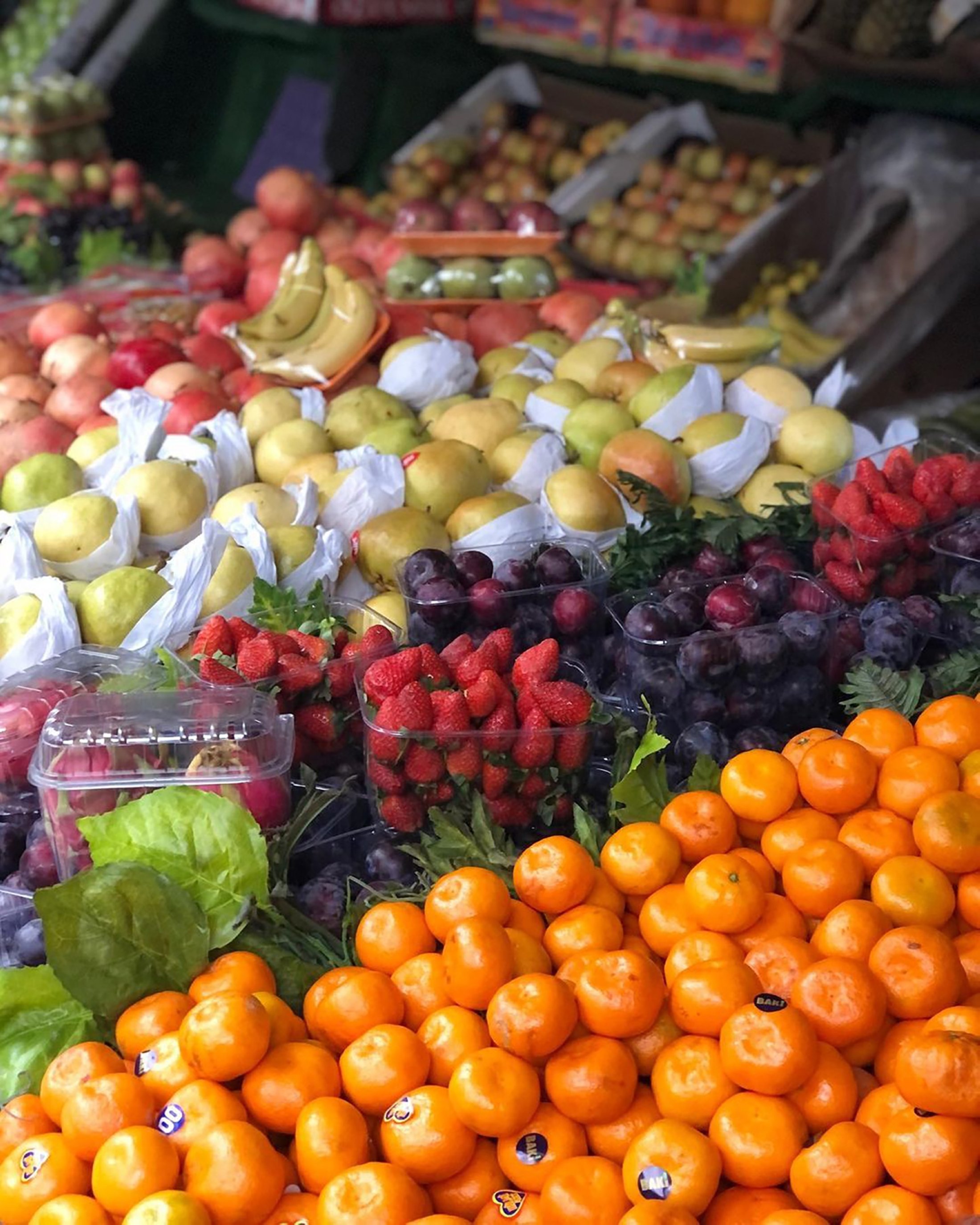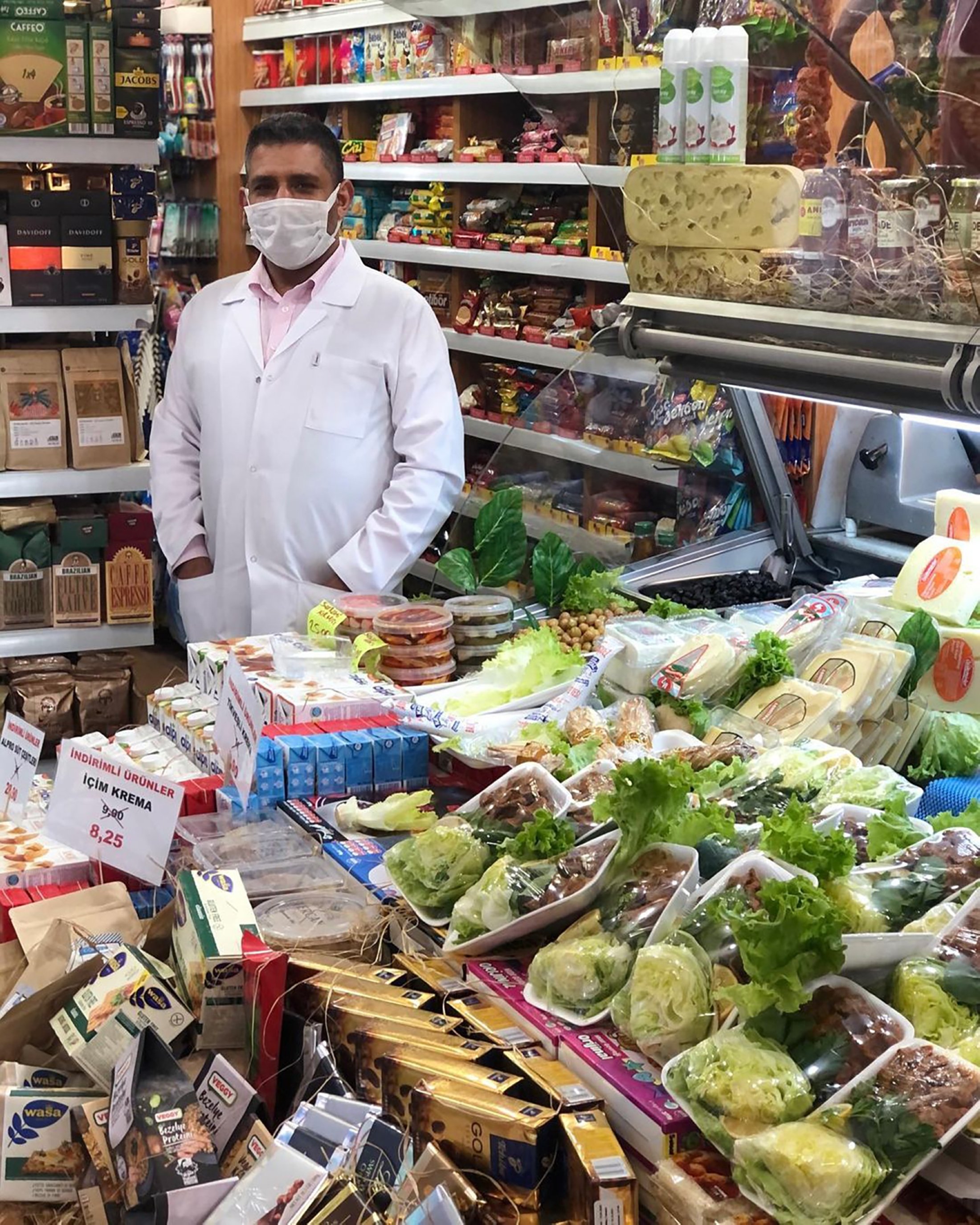© Turkuvaz Haberleşme ve Yayıncılık 2025
In recent weeks, the shift toward post-pandemic thinking has altered the course of everything, from workplace culture to travel plans, as countries ease restrictions and globetrotters tie their laces all the tighter to make up for lost time, art exhibitions reemerge from the digital world and cafe society resumes its dedication to the caffeinated enlightenment of the overeducated, underemployed masses. But on a smaller scale, for workers and locals in the neighborhood of Moda, Istanbul, the seemingly simple move of a humble greengrocer from one corner to another feels like a harbinger of greater changes on the horizon.
Umut would display its reliable stock of fruits and vegetables like a folding hand fan, spread out for the nearest circle of residents to fortify their home supplies of the nutritive items that grow aplenty across the land. Although their shiny, enlarged forms marked the produce as commercially grown, the market's outdoor staff would wait and weigh and joke and help, even advise, imploring their patrons to try the latest stock of purple basil, “reyhan” in Turkish, as its steeped leaves make for a particularly refreshing drink when served chilled as the weather warms.
They were a tough-looking bunch of middle-aged men, with gnarled hands that reached for soil-smeared potatoes and tomatoes dripping with water with a grasp that evoked the physicality of rugged farmers. But they were quick to smile, and at the sight of a foreigner who knew a little Turkish, they might declare that they were open-minded, and enjoyed meeting every kind of person, no matter their beliefs or origins. That was the case along the bustling Moda Avenue, where teenage partygoers and European vacationers would brush shoulders with an old man in search of the right shape of onion for his next hot salad.

Although the organic market, Ada, across the street from Umut, sold a more palatable, seasonal round of competing produce with rustic naturalism, stocked shelves and a bijou storefront that captured the imaginations of the upwardly mobile folks who ambled about the seaside quarter, Umut was down to earth. Its interior also had an ample bounty of vegan and alternative options, as well as goods from various small-scale agriculturalists and dairy farmers from the breadth of Anatolia. There was an herb-infused, soft white cheese from Van next to yogurt from a milk cooperative from the Aegean province of Tire in the region of Izmir.

One American environmentalist who lived down the street would come in with empty glass jars, asking for dry foods in bulk to be poured into his special containers, so as not to add to the overwhelming amount of waste that is usually habitually forced onto daily shoppers encircled by storms of plastic bags, paper receipts and coded stickers. Affable cashiers exchanged places as they’d call out to their buyers with terms of endearment, pronouncing the everyman a king as he exited with his arms full of garlic and eggplants. They might even try their English, especially when the main counter was run by the manager’s daughter.
All in all, it was a friendly place, as workers laughed among themselves, spreading that normalcy that runs through everyday life, bringing a kind of dependable cheer. No matter the world’s dreary events, or what argument might have ensued between a loved one, or friend, someone would be there to brighten the mood when the only thing left to do is buy bread and milk for the morning. And now that its facade has been stripped, its wide, green cupboards removed from the sidewalk corner where it took up so much space, there is a visible absence, palpable not only by the disappearance of its stock but of its grounding presence.
They say that the Beyaz Fırın bakery franchise will replace Umut, and with it, Moda will attract its elite, leisure class who, on their way to the coastal restaurants, picnicking along the Sea of Marmara shorefronts, they might fancy a sweet cake, or stop to sip on a milky espresso. But the character of the place is already missed.

Umut could be said to have been one of the last working-class establishments active in that part of Moda. And while it might not have had the best-tasting carrots and lemons on that one block, what it did was stay true to the spirit of inclusivity that is increasingly rare in a capitalist society bent on infinite upwardness.
There is no question of whether or not the displacement of Umut is part of the long haul of gentrification in Istanbul’s core districts. It is, even as its slow rise is incremental. But what people might fear is a future in which one of Istanbul’s most picturesque quarters becomes closer to a summer resort than a livable neighborhood. Whereas Umut held down the fort, Beyaz Fırın might swing the door wide open.
There is, nonetheless, a fine balance between openness and vacancy, whether of a city or a country. As the world becomes more mobile again, the contrast between inhabiting and visiting will be subtler, perhaps like experience versus perception. And yet, the difference for those who live in Moda, as for the locals of any popular city neighborhood, the change will be as sharp as buying ingredients versus getting a coffee.
